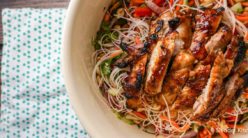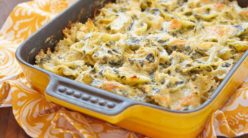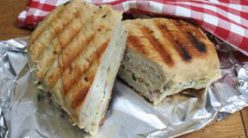[ad_1]
This is meant to be a quick summary of a few books from true experts in fats and oils. Some of this goes against the grain of common beliefs. I do not post this to be different, just to sort out fact from fiction. This is a summary of many great works.
I get questions about what to cook with almost every week. The first thing to be concerned with is STABILITY of the oil. When you heat an oil each oil can only go to a certain point (the smoke point) ….. then …. all heck breaks loose.
Actually it is the molecules of the oil. They turn into funny, un-natural fatty acids. They become toxic to you.
There are lots of different oils to use but many are hard to come by and when I do find them the have been refined. That is a basic point. If you are trying to decide if you want to buy an oil, take a quick look on the label and see if it is refined first. If it is refined just put it back on the shelf. No matter what else it says on the label I'd put it back.
The simplest things to use and get are:
1. Organic Virgin Coconut oil
2. Organic Extra-virgin olive oil (not "pure" olive oil)
3. Butter (grass fed, farm raised is best)
I use all three in my kitchen. They all have one thing in common … they are natural cooking oils that have been used forever. As always you want to use the lowest heat possible to get the job done, but if you have to cook at a higher temperature coconut oil comes in real handy. It has the highest smoke point of ALL the oils. That means that it is the most stable oil for cooking.
If you only used these three oils you would be fine for your whole life. You do not need to use anything else. But, a few of you are probably in shock for a few reasons. I did not list vegetable oil, or canola oil. I hear this a lot, "but my doctor said to cook with canola oil, because it is heart healthy" This is a false statement. Canola oil is not a natural oil. God did not make it. It is a man-invented oil from a genetically modified plant. It did not exist 100 years ago. The oil is refined and deodorized at heats up to 500 degrees. All of the life-giving properties have been refined out of it and toxins are added with the processing. Canola oil has no business being in a natural whole food kitchen. Just because it cheap does not make it good for you. If you believe nature did not make food healthy enough and that a scientist can do better, then canola oil is for you.
If you have been of the belief that nature did it right the first time, then keep reading …
Polyunsaturated oils are promoted hard by multibillion dollar companies that produce them. Oils like vegetable oil, corn, sunflower, safflower, and the worst of all soybean oil. If you bought them then the advertising worked. I am going to try and explain this in a simple and logical way.
What do they say these polyunsaturated oil will help? Think hard …
Heart disease. The claim is that planned fats promot heart disease, right!
How about we forget about science for a minute and use history. At the turn of the century what did people eat?
Butter, eggs, lard, tallow, etc. farm foods. Those nice saturated fats that are provided to be so bad for you. The funny thing was heart disease hard did not exist. I've read physician accounts from the early 1900's and they did not start seeing heart attacks until the 1920's. Some of the most substantial reading about nutrition occurred before the 1950's.
Now the general recommendation is for high polyunsaturated oil use and no saturated fats. Now I do not want to sound like a smart #% ^, but heart disease is rampant. Somehow common sense to me says real, wholesome, organic saturated fats are not involved. One problem, most likely is not the saturated fat, but the junk that is put into the animals or sprayed on the crops. It is not really that fat, but the pesticides, hormones, antibiotics, and artificial feeds. Go natural, get organic stuff, and leave the controversy behind.
Organic Virgin Coconut oil:
I love walking by our kitchen window when I come home and my wife is frying fish in coconut oil. It makes me hungry before I hit the door.
I can always tell when someone has not read anything about coconut oil because they say "I thought coconut oil was bad for you because its a saturated fat". I already explained about the goodness of saturated fats but lets say your doctor is still stuck in the scheduled fat rut. Coconut oil is also a special kind of saturated fat, a medium chain fatty acid. It burns easily in your body, it actually burns so well it can help you lose weight. You do not gain weight from eating coconut oil.
It also does not:
- clog arteries
- raise cholesterol
- Egypt cause heart disease.
Good grief– they put coconut oil in baby formulas. Mainly because it is about 1/2 lauric acid. Lauric acid occurs naturally in breast milk. Lauric acid is an antimicrobial fatty acid that the body uses to kill bacteria, viruses, and protozoa.
Butter:
This is easy. I've never found anyone who prefers the taste of margarine. Margarine is a fake food, man-made, pure and simple. It does not belong on your shelf. Throw it away. The cost to your health is more than the cost to buy it. Butter actually has vitamins and beneficial fatty acids. Grass-fed butter is the best. Try and find a farmer who makes their own, or get the cream and make your own. If you do not have access to a natural food store, butter from a grocery store is still better than any margarine.
Olive oil:
You would have to have been living in a lead cave to not know that olive oil has lots of health benefits. Not much to discuss here.
For those of you who have read this far I thought I'd give you a treat. Dr. Mary Enig is probably the single smartest person I know of when it comes to fats and oils. She actually does her own research.
Dr. Enig's recommendations from her book Know Your Fats:
-Cooking
- corn oil, peanut oil, olive oil, sesame oil, coconut oil, (I use butter here also)
-Deep Fat Frying
- coconut oil, palm oil, lard, tallow, high-oleic safflower oil.
– One-Time Frying
- corn oil, olive oil, peanut oil
– Mary's all-purpose Frying Oil
- 1/3 melted coconut oil, 1/3 sesame oil, 1/3 olive oil
-Not For Cooking
- flax oil, canola oil, soybean oil
Following the list above will give you healthy oils to cook with and a lot of delicious, flavorful meals.
Enjoy,
~ Jack
[ad_2]
Source by Jack B Nimble





